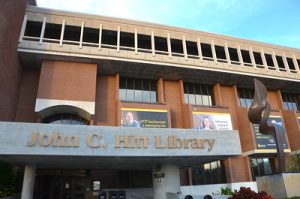18 UCF Library Support
Librarians Can Help You Find OER

The Open Educational Resources (OER) Library Guide helps you get started, follow the steps of incorporating OER in your courses, and provides librarian contact information.
A librarian can assist in your search for OER and can also recommend zero cost options such as e-books, databases, specialized collections, and more. Keep in mind that librarians have the following skills:
- Expert search strategies and tactics.
- Ability to suggest repositories and collections that you can then search on your own.
- Teaching skills and tools to conduct successful searches.
- Assisting in initial evaluation of resources.
Who to contact
- The UCF Textbook Affordability Librarian can help you transition traditional course content to affordable textbook alternatives such as open educational resources and library-sourced e-books and materials. The Textbook Affordability Librarian may also collaborate with your subject librarian to find solutions that work best for your course.
Best Practices for Using Library Materials
Because library materials are free to students, they can be used in a class designated as a zero textbook cost class. Like all other copyrighted and restricted materials, you must be careful how you use library resources to make sure you do not violate the terms of use of the resource.
- Consult a librarian. Ask them about the specific resources you might want to use in your class.
- Many online materials, such as e-books and journal articles, are not owned by the library. This means that resources may change from semester to semester as subscriptions change.
- Know that e-books may not be accessible by more than one student at a time, depending on the license of the individual e-book.
- For the use of library materials in your course, such as an article from a database, properly link to the resource instead of making digital copies. If you do not know how to link to a library resource, consult a librarian.
Leganto Reading Lists in your Webcourses
Leganto is a tool to organize educational resources and is integrated into your Webcourses. You can create reading lists directly linked to the library’s catalog and digital repositories. Contact a librarian for assistance incorporating library-sourced resources into your Webcourse using Leganto.
Paradiso, J. R., & Luken, D. (n.d.). Introduction to open education (Adapted from Parsons, J., OER specialist training manual). Licensed under CC BY SA 4.0.
UCF Libraries. (2024, August 20). Open educational resources (OER). https://guides.ucf.edu/OER

